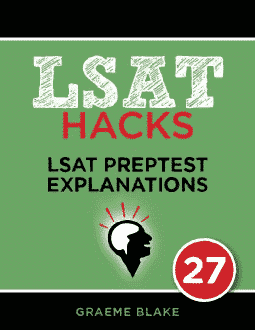QUESTION TEXT: A local chemical plant produces pesticides that can cause sterility…
QUESTION TYPE: Flawed Parallel Reasoning
CONCLUSION: Pesticides are polluting the river.
REASONING: A chemical plant produces a pesticide that can make otters sterile. Otters in the nearby river became sterile at a much higher rate once the plant opened for business.
ANALYSIS: There are two major problems. First, the plant is “near” the river. But we’re never told if the pesticides reach the river.
Second, note that we only know the pesticide can cause sterility. It might not, and it when it does it might not produce a “dramatic” increase.
We’d have to eliminate the other causes of sterility
in otters to know that the pesticide was definitely
the cause.
___________
- This is a bad argument, but the flaw is different. At least the argument has shown that horses do have tetanus bacteria. The argument is bad because it has failed to show two things:
1. Is it only horses that have tetanus in their digestive tract?
2. Can tetanus infect an animal if the bacteria are in its digestive tract? - CORRECT. This repeats the two errors. First, we don’t know if the forage is actually low in calcium. Second, even if the forage is low in calcium, we don’t know if its the cause of the decreased egg production. There are many other possible causes of low egg production.
- This is a bad argument. We don’t know what the other causes of infection are. Maybe all zoo animals are susceptible to infection, even if well nourished. But this argument doesn’t repeat the two flaws of the stimulus.
- This is a bad argument, but the flaw is different. Just because all apes have opposable thumbs, that does not mean that only apes have opposable thumbs. You have opposable thumbs, but you’re not an ape.
- This isn’t quite a good argument. Someone might have transported a bear into the area. But the two flaws from the stimulus aren’t repeated.
Recap: The question begins with “A local chemical plant produces pesticides that can cause sterility”. It is a Flawed Parallel Reasoning question. Learn how to master LSAT Flawed Parallel questions on the LSAT Logical Reasoning question types page.


Leave a Reply